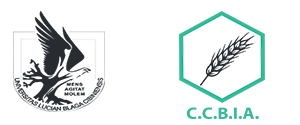The selected research areas Food Safety and Biotechnology are two complementary areas of great importance in terms of production of common foods (actual), dietary, for effort, with a functional role, for private nutrition, nutraceutical foods or as a drug / pharmaceutical.
Biotechnological processes govern most of the processes underlying the production of these foods, from the raw material to the finished product capable of satisfying the basic requirement (s) for which it was produced.
Of major importance is the continuation and development of scientific research aimed at substantiating and developing modern biotechnologies and the production of bioproducts, by promoting in different sectors of activity such as the food industry, the theoretical and experimental results obtained through:
- Isolation and obtaining of pure cultures (culture starter) of microorganisms (yeast bacteria and molds) in the laboratory. Selection and improvement of fermentative and bio-synthetic properties of pure cultures of microorganisms.
- Morphological and physiological characterization of some strains of microorganisms with importance in the food industry.
- Carrying out studies on the use of pure crops in agri-food biotechnologies to obtain products with constant quality
- Biotechnologies for obtaining microbial enzymes
- Development and integration of biotechnologies in the process of refurbishment of the Romanian food industry in order to modernize and generate its own technical and technological base.
- Development of those directions of scientific growth in various sectors of activity (food industry, agriculture, animal husbandry, medicine, chemical industry, energy, etc.) whose applications in practice (products, services) can directly contribute to increasing the quality of life.
- Study of the biotechnological properties of fermentative yeasts (beer, wine, alcohol, bakery) used industrially in the manufacture of beer, wine, alcohol and bread
- Study of the multiplication and fermentation capacity of some industrial yeast strains.
- Studies on the optimization of the physiological activity of yeasts (beer, wine, alcohol, bakery).
- The influence of physical, chemical and biological factors on the activation of industrial yeasts in food biotechnologies.
- Study of the chemical composition of residual industrial yeasts and obtaining yeast biomass used as a source of protein in human and food nutrition
- Obtaining from residual yeasts the yeast extracts (autolysed, plasmolized, enzymolyzed, hydrolyzed), used as food additives and for the improvement in nitrogenous substances of the culture media destined for fermentations or of the cultivation of valuable selected microorganisms.
- Study of selected strains of molds used industrially to obtain valuable and useful products for humans (enzymes, organic acids, antibiotics, vitamins).
- Study of selected molds used in the cheese industry and in the meat products industry.
- Knowledge of the possibilities of using microorganisms in different technological processes of production of material goods (microbiology and biochemistry of fermentations); highlighting the biotechnological and biochemical characteristics as well as the optimal activity conditions of the microorganisms that produce chemical transformations in different substrates with the formation of relatively large quantities of substances of utilitarian or economic value.
- Study of food fermentation processes: monitoring the process of alcoholic fermentation of must (grapes and malt) in terms of nitrogen content; monitoring fermentation processes using enzymatic biosensors; immobilized enzymes and enzyme preparations-enzymatic kinetics.
- Obtaining natural active principles and diversifying on this basis the products intended for the chemical-pharmaceutical, food, cosmetics, health industries, etc .:
- Use of modern methods of isolation and purification of organic compounds (tannins, volatile oils, etc.).
